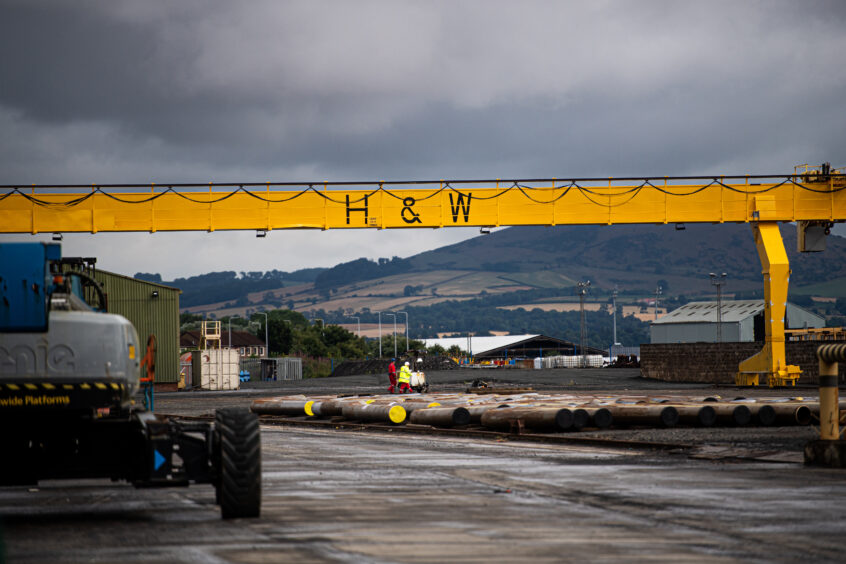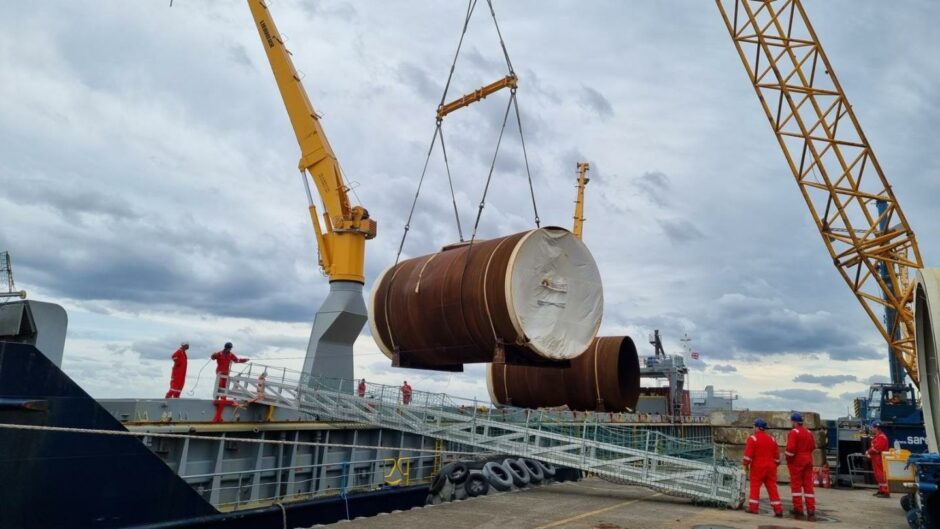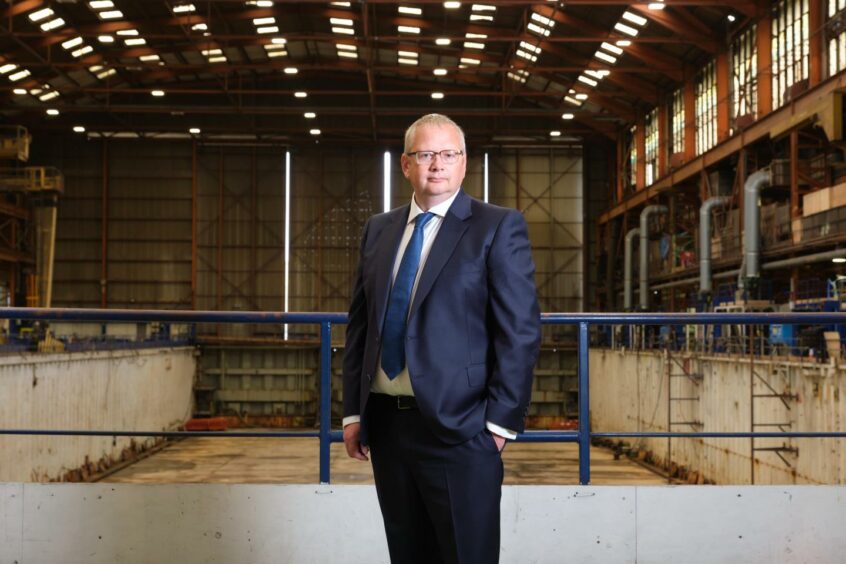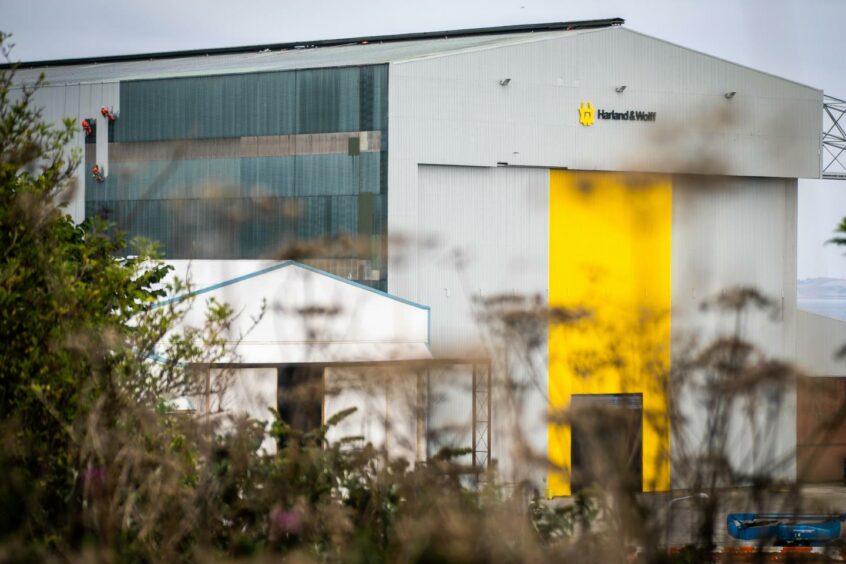
Dozens of workers at a Scottish fabrication yard are facing redundancy, less than two years after a major green jobs boom was touted for the site.
London-listed Harland & Wolff (LON: HARL) is in the “process of rationalising” its Methil facility, with plans to streamline the workforce to around 115 “core personnel”.
It’s thought more than 60 workers at the Fife yard are being let go, despite claims from a union official that employees were told earlier this week that there jobs were safe.
Harland & Wolff says the move will help to “align” the facility with the company’s resources and cost base with the level of work being undertaking at the yard, while “protecting its margins”.
Highs and lows
In April 2021, Harland & Wolff confirmed it had won a contract with Saipem to fabricate eight wind turbine jackets for the Neart na Goithe development, about nine miles off the Fife coast.
It came just weeks after the company acquired the Methil yard, once owned by failed firm Burntisland Fabrications (BiFab).
The £26.5 million deal was expected to create 290 new indirect and direct Scottish jobs and was met with fanfare from across the country.
Many saw it as the first step on the road to securing a long-awaited green jobs boom after numerous false starts – but things haven’t played out as planned.
In September, Harland & Wolff confirmed it had reached an agreement with contractor Saipem to descope the contract from eight structures to four.
Then, just before the end of the year, the firm revealed it had terminated the contract, claiming cost escalation and delays have made the work “sub-economic.”
Following the decision to abandon the work, a union official said it highlighted the myth of Scotland’s just transition.
Responding to this latest announcement, GMB Scotland organiser Dominic Pritchard said: “No one was blind to the difficulties facing the yards as a result of the Saipem contract, but this is poor from Methil’s senior management because earlier this week the workforce was told there would be no cuts. Instead, workers have learned through the media that jobs are going and that means displacement and unemployment for over sixty workers. It goes without saying that we fully expect Harland & Wolff to fulfil their statutory obligations to these workers, but it’s also clear we’ll have to fight and tooth and nail to ensure this because the company’s approach to employment relations speaks for itself.”
“The future remains precarious and the hope will be the barge contract work will mitigate the threat of further instability, but let’s be absolutely clear that the like of Methil and Arnish will continue to struggle for stability unless there is significant state investment in the renewables manufacturing supply chain to allow these yards a credible chance of securing and delivering offshore wind contracts. If Scotland has been the blueprint of how not to deliver a green jobs revolution, then Methil is the real-world illustration of the price workers and communities pay for this chronic political failure.”
Saipem contract settled
Negotiations with Saipem have now successfully concluded, and the contract value has been finalised at £16m.
That is roughly 70% of the value of the deal, as per the update signed in September as part of descoping from eight jackets to four.
The entire amount has now been paid in full and the contract settled, Harland & Wolff said.
Mr Wood said: “The Saipem project was the first project to arrive in Methil after our acquisition of the facility.
“With the previously announced delays and the changed economic position of this project, it was in the Company’s best interests to draw the project to a mutually acceptable close.
“The project has been a helpful learning curve for the business in this environment and we will take the lessons learnt forward into our next major project.
“In the meantime, the teams are focusing on constructing barges whilst contract discussions and negotiations advance for another large project.
“In the interim, the Company is focused on progressing the Company’s pipeline of opportunities across its different sites and markets and remains steadfast in its approach to executing on contracts which maintain strong and attractive margins.”
Looking ahead, Harland & Wolff says it expects the renewables market to demand more local fabrication capacity in the UK than is currently available.
The company considers that the lead time to secure contracts in the renewables space takes approximately 12 – 36 months, and a number of such tenders have already been submitted for additional work at Methil over the mid-to longer term.
Meanwhile, the firm is also advancing on a pipeline of nearer term smaller projects which it expects to undertake over the coming months.
The latest chapter in a sad story
As yet, Scotland’s abundant renewable energy resources have failed to translate into any meaningful industrial benefit for the country, despite countless political pledges.
The vast majority of the fabrication work for Scotland’s operational wind farms was carried out overseas, with parts then shipped over.
It is hoped that the ScotWind leasing process, which awarded rights to 20 projects, will mark a step change, but that’s just a dream at this stage.
Many will say there is little room for optimism given the track record, particularly the example of BiFab, which collapsed in 2020 after a lifeline deal for NNG dissolved.
Redundancies at Methil will fuel fears that a repeat is on the cards.
Recommended for you


 © Supplied by Harland and Wolff
© Supplied by Harland and Wolff © Supplied by Harland & Wolff
© Supplied by Harland & Wolff © Supplied by DCT Media
© Supplied by DCT Media